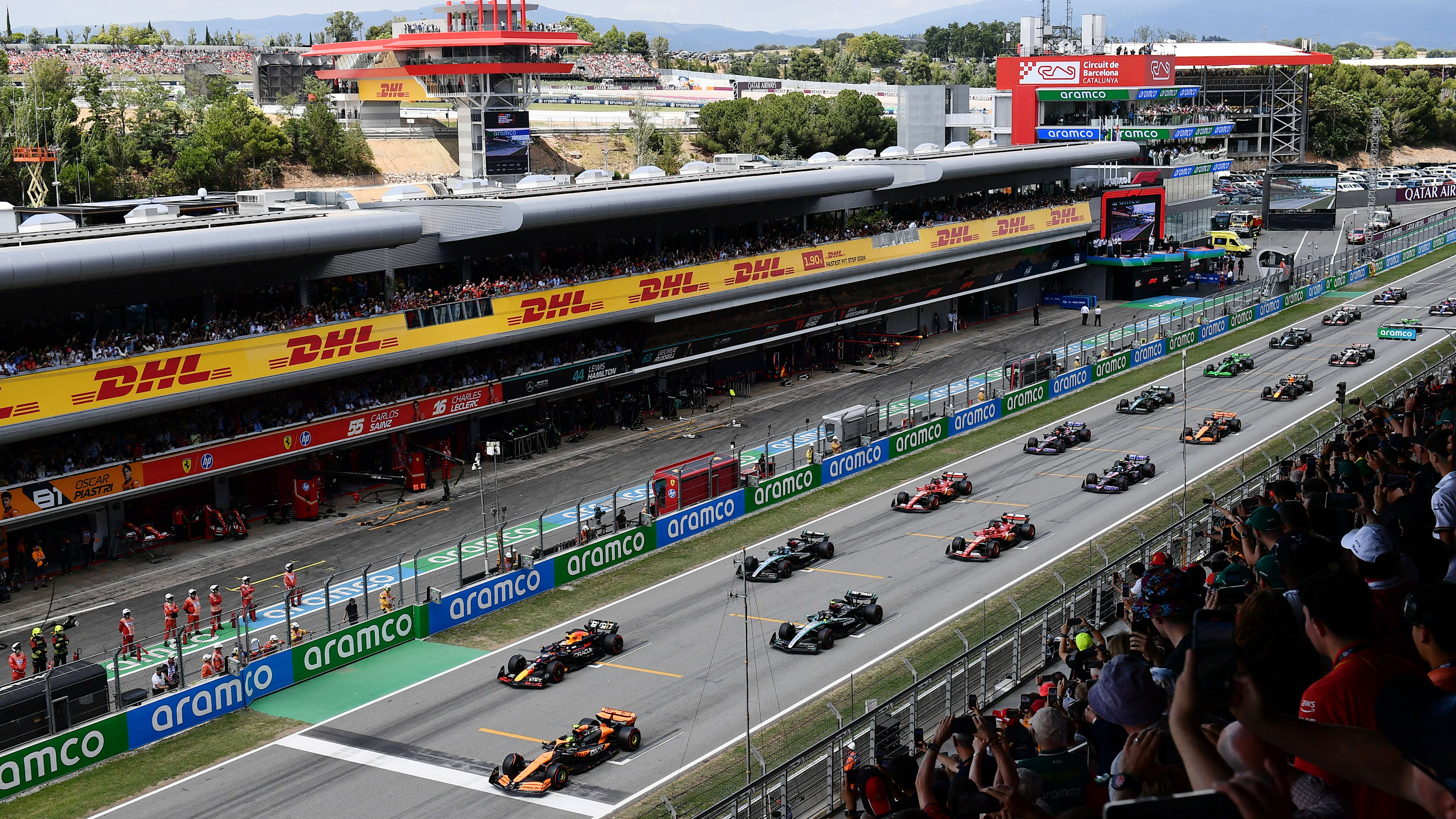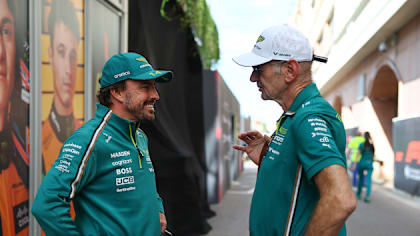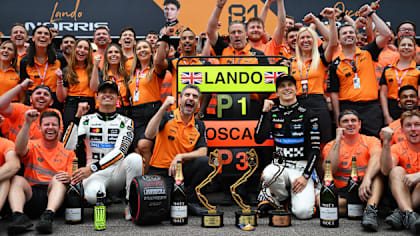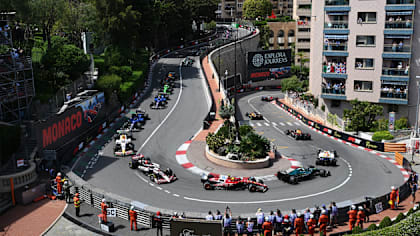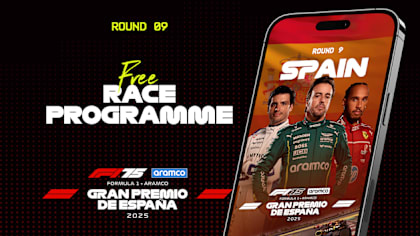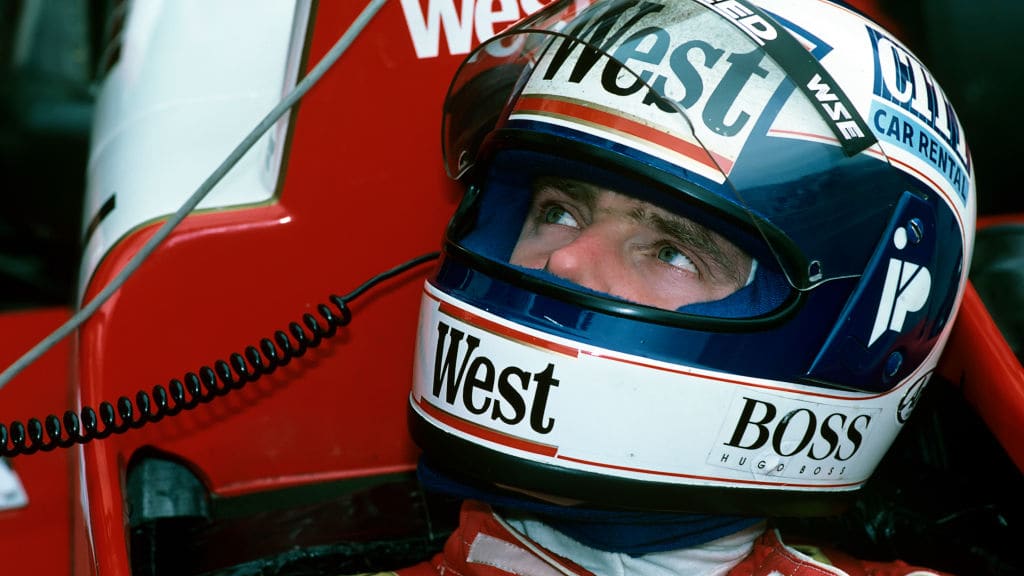
PodcastF1 Unlocked
FULL TRANSCRIPT: Read every word from Jonathan Palmer's captivating Beyond The Grid interview
Share

Jonathan Palmer is this week's guest on F1's Beyond The Grid podcast, as he opens up to host Tom Clarkson about his path to Formula 1, qualifying as a doctor, working with Ayrton Senna and much more...
Read every word from the interview below or listen to the episode in the audio player below, or head here to catch it on your preferred platform.
Tom Clarkson: 83 starts in Formula 1 from 1983 to ‘89. Best result of fourth at Adelaide in ‘87. How do you reflect on your time at the top?
Jonathan Palmer: It was probably the most defining time in my life. I think with any of us who've been motor racing, particularly at Formula 1 level, one knows exactly what you’re doing at any given year. If you mention ‘89, ‘83, ’84, years come into sharp focus. I suppose it’s because you’re changing teams quite often or there’s always a new car. Whereas if you ask me what I was doing in 2006 or 2014, I'd really find it hard to define what I was doing that particular year.
So, it is very much still in the spotlight mentally. And in terms of earning money and as a business career, Formula 1 wasn’t a great time. But of course, it was important in that it was one hell of an ambition that any driver, me included, had. You're coming up through Formula Ford, Formula 3, Formula 2 in those days and Formula 1, it's where you wanted to be. The effort that I went to and contemporaries of mine; Derek Warwick, Martin Brundle. It was just the most important thing in our lives. But to actually get there was amazing and it was pretty precarious trying to stay there. You wanted to try and do the best job you could but hope that that was good enough for you to end up staying there and I did for six years.
I'm proud that I got to Formula 1. I'm proud that I did six years of it, with reasonable levels of success. I was not an Ayrton Senna or an Alain Prost. But nevertheless, I think the most important thing for me and indeed for anybody in their lives is that I gave it my best shot. I'm satisfied with that. I could not have tried harder to be successful with the level of talent I had in Formula 1 and the results that I got overall were probably the sort of results my talent justified. Yes, if I’d got into a Williams or McLaren, I'm sure I could have won the odd Grand Prix. But would I have won the World Championship against the likes of Senna? No.
TC: You had a stellar junior career; British Formula 3 champion, European Formula 2 champion. With that kind of CV, did it frustrate you that you didn't get a chance in a front-running Williams or a front-running McLaren?
JP: It didn’t frustrate me as much as one might have thought. I don't quite know why not. I suppose coming up through, I was desperate to get to Formula 1 and desperate to win at every level. But at the same time, I was always pretty realistic. I always knew there were a lot of other good guys out there and of course, winning in Formula 3, I won in Britain, but admittedly half the field were overseas drivers and British Formula 3 when I was doing it was very much the place to be.
In Formula 2, I definitely had a car advantage with Ralt-Honda, certainly in the second year. But on the other hand, I also had a good teammate with Mike Thackwell, whom I beat pretty well too. So, I certainly deserved to get into Formula 1, but the gap between the back-end teams and the front teams in my day was so big that it was almost impossible to make any kind of impression. I remember looking back through the grids for Grands Prix when I started my first full year in 1984 and the gap between front and the back was about 10 seconds a lap. This is like having a Formula 2 car in a Formula 1 race and people discounted what you did. It was quite hard to make an impression at a back-end team because you were so far off the pace.
TC: I want to point you towards ‘87. It was reported at the time that you were having discussions with Ron Dennis at McLaren to replace the retiring Keke Rosberg…
JP: I had a few times when I got very close, but fate didn't go my way. The first was back in 1982, my first full year of Formula 2. I'd won the British Formula 3 championship in 1981. I had test drives with McLaren, Williams, and Lotus that autumn, joined Ralt-Honda for Formula 2, but was also test driver for Williams. That was great because I was getting mileage in the car and that was really before test drivers were the sort of thing that teams had. I was one of the first serious test drivers for a team. Then I remember the start of the 1982 Formula 1 season, Carlos Reutemann was driving for Williams and he suddenly wanted to stop. This was only the second or third race of the year and Frank Williams came down to Thruxton and sat in the car with Ron Tauranac to discuss me and whether I was ready to make the jump into Formula 1 to replace Carlos Reutemann.
TC: Were you ready?
JP: I think I could have been, to be honest. But the problem then was that we had Bridgestone tyres on the Ralt at the time. The degradation was pretty high so you could qualify well, but the performance dropped off very quickly in the race. Because it was new at that time, I don't think Ron Tauranac and other people around really appreciated how much degradation there really was with the Bridgestone tyres at that time in a race situation and, therefore, how much it compromised the performance of the drivers in the cars.
So I think that's why Ron said: ‘look, he's quick, he's talented, he's bright, he needs more experienced race-craft,’ because the few races I had done were just totally blighted by high degradation. Then Frank took Derek Daly instead of me. When I won the British Formula 3 championship, I had a prize of a test in the MP4 with McLaren and the test was at Silverstone. I did a very good job. The car suited me very well. Ron Dennis was engineering me. I set a time that would have put me on the second row of the grid for the British Grand Prix and after that test, Ron said: ‘Right, I want you to come down and meet John Barnard. Jump in the car with me, we'll drive back down to Woking.’ So that evening I was talking to Ron and John in quite some depth and subsequently I understood that they were looking very seriously at whether they were going to put me in the car for next year.
But as it happened, Niki Lauda came out of retirement and that was the end of that one. ’87 was the time I'd won the ‘normally aspirated championship’ in Formula 1. I was pushing everywhere and I don't know how seriously I was being looked at by McLaren. But there were a few times when potential Formula 1 drives could have been game-changers. Part of the reason for joining McLaren as their test driver in a pretty intensive capacity was that I thought this could be my chance if Senna or Berger had a problem and I could jump in the car and probably get a result in a top running car. That was the chance of really launching myself into a way of getting into a top car.
Unlock exclusive F1 content and more with F1 Unlocked. Totally free.
Membership gets you closer with:
- Curated insider content
- Live like an F1 insider with exclusive access and VIP experiences
- Member benefits, rewards and offers
Already have an account?
Sign InYOU MIGHT ALSO LIKE
News ‘It was great to witness’ – Alonso reflects on how Newey’s presence in Monaco impacted ‘level’ of Aston Martin team
FeatureF1 Unlocked THIS WEEK IN F1: 10 quiz questions on the Monaco Grand Prix and F1 history in Barcelona
FeatureF1 Unlocked PALMER'S ANALYSIS: Did the two pit stop experiment work in Monaco?
Feature SPANISH GRAND PRIX – Read the all-new digital race programme here
